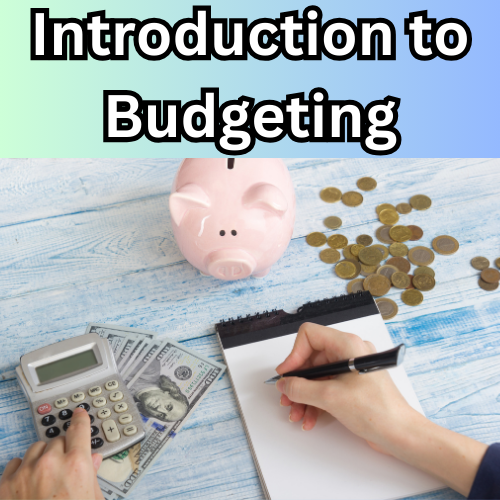

Once upon a time, in a small town called Financia, lived a young woman named Emily. Emily had recently graduated from college and landed her first job. She was excited to earn her own money but soon realized she needed to manage it wisely. One day, Emily’s friend Sarah suggested creating a budget to keep track of her finances. Emily was intrigued and decided to learn more about budgeting.
Sarah explained that a budget is a plan for how you spend your money. It helps you control your finances, save for the future, and avoid debt. Emily realized this was important, especially since she wanted to save for a vacation and pay off her student loans.
Creating a Budget
Sarah walked Emily through the steps of creating a budget:
Identify Income: Emily noted her monthly salary from her job. Income is the money you earn from work, investments, or other sources.
List Expenses: Sarah helped Emily list her expenses. Expenses are the money you spend. Emily's expenses included rent, utilities, groceries, transportation, and entertainment.
Categorize Expenses: Emily grouped her expenses into categories such as housing, food, transportation, and entertainment. This made it easier to see where her money was going.
Set Priorities: Sarah advised Emily to prioritize essential expenses like rent and groceries before spending on non-essential items like eating out and shopping.
Allocate Funds: Emily allocated a specific amount of money to each category. She made sure to set aside some money for savings and emergencies.
Track Spending: Sarah emphasized the importance of tracking spending to ensure Emily stayed within her budget. Emily used a budgeting app to monitor her expenses.
The Moral Lesson
Emily followed Sarah’s advice and created her budget. She was amazed at how much more in control she felt over her finances. She could save money, pay off her student loans faster, and even set aside some funds for her dream vacation.
One day, Emily faced an unexpected expense when her car broke down. Thanks to her budgeting skills, she had an emergency fund to cover the repair costs without going into debt. Emily realized that managing her finances responsibly was essential for financial security and peace of mind.
Emily shared her budgeting journey with her friends, encouraging them to create their own budgets. She became known as the “Budgeting Queen” in Financia, helping others achieve their financial goals.
Once upon a time, in a small town called Financia, lived a young woman named Emily.
Emily had recently graduated from college and landed her first job.
She was excited to earn her own money but soon realized she needed to manage it wisely.
One day, Emily’s friend Sarah suggested creating a budget to keep track of her finances.
Emily was intrigued and decided to learn more about budgeting.
Sarah explained that a budget is a plan for how you spend your money.
It helps you control your finances, save for the future, and avoid debt.
Emily realized this was important, especially since she wanted to save for a vacation and pay off her student loans.
Creating a Budget Sarah walked Emily through the steps of creating a budget: Identify Income: Emily noted her monthly salary from her job.
Income is the money you earn from work, investments, or other sources.
List Expenses: Sarah helped Emily list her expenses.
Expenses are the money you spend.
Emily's expenses included rent, utilities, groceries, transportation, and entertainment.
Categorize Expenses: Emily grouped her expenses into categories such as housing, food, transportation, and entertainment.
This made it easier to see where her money was going.
Set Priorities: Sarah advised Emily to prioritize essential expenses like rent and groceries before spending on non-essential items like eating out and shopping.
Allocate Funds: Emily allocated a specific amount of money to each category.
She made sure to set aside some money for savings and emergencies.
Track Spending: Sarah emphasized the importance of tracking spending to ensure Emily stayed within her budget.
Emily used a budgeting app to monitor her expenses.
The Moral Lesson Emily followed Sarah’s advice and created her budget.
She was amazed at how much more in control she felt over her finances.
She could save money, pay off her student loans faster, and even set aside some funds for her dream vacation.
One day, Emily faced an unexpected expense when her car broke down.
Thanks to her budgeting skills, she had an emergency fund to cover the repair costs without going into debt.
Emily realized that managing her finances responsibly was essential for financial security and peace of mind.
Emily shared her budgeting journey with her friends, encouraging them to create their own budgets.
She became known as the “Budgeting Queen” in Financia, helping others achieve their financial goals.
|
|

IncomeIncomeMoney earned from work or investments. |

ExpensesExpensesMoney spent on goods and services. |

BudgetBudgetA plan for managing money. |

SavingsSavingsMoney set aside for future use. |

DebtDebtMoney owed to others. |

Emergency FundEmergency FundMoney saved for unexpected expenses. |

RentRentPayment for housing. |

UtilitiesUtilitiesServices like water, electricity, and gas. |

GroceriesGroceriesFood and household items. |

TransportationTransportationTravel costs, such as gas or public transport. |

EntertainmentEntertainmentActivities for enjoyment. |

PrioritizePrioritizeTo arrange in order of importance. |

AllocateAllocateTo distribute resources for specific purposes. |

TrackTrackTo monitor or keep a record of. |

Financial SecurityFinancial SecurityStability in managing money. |

Peace of MindPeace of MindA state of mental calmness. |

SalarySalaryRegular payment from employment. |

InvestmentInvestmentMoney put into something to earn more money. |

LoanLoanBorrowed money that must be repaid. |

GoalGoalAn aim or desired result. |

SpendingSpendingUsing money to buy goods and services. |

ManageManageTo control or handle. |

ResponsibleResponsibleBeing accountable or in charge. |

UnexpectedUnexpectedNot planned or anticipated. |

RepairRepairTo fix something. |

MonitorMonitorTo observe or check. |

AppAppShort for application, a software program. |

EssentialEssentialAbsolutely necessary. |

Non-essentialNon-essentialNot absolutely necessary. |

Student LoansStudent LoansMoney borrowed for education. |

ControlControlThe power to influence or direct. |

ExpensesExpensesCosts or charges. |

PlanPlanA detailed proposal for doing something. |

SecuritySecuritySafety or stability. |

MindMindThe element of a person that enables them to think. |

FundFundA sum of money saved for a particular purpose. |

CostCostThe amount of money required to buy something. |

AdviceAdviceGuidance or recommendations. |

JourneyJourneyThe act of traveling from one place to another. |

EncourageEncourageTo give support or confidence. |
In conclusion, learning to budget is a crucial skill that helps individuals manage their finances effectively, avoid debt, and save for future goals.
Emily's journey in Financia demonstrates how creating and sticking to a budget can lead to financial security and peace of mind.
By following simple steps like identifying income, listing expenses, prioritizing needs, and tracking spending, anyone can take control of their financial future.
The story of Emily serves as a reminder that responsible money management is the key to achieving financial stability and reaching personal goals.
Questions and Answers Question 1: What is a budget?
Answer: A budget is a plan for how you spend your money.
It helps you control your finances, save for the future, and avoid debt.
Question 2: Why did Emily decide to create a budget?
Answer: Emily decided to create a budget to manage her finances wisely, save for a vacation, and pay off her student loans.
Question 3: What are some of the categories Emily used in her budget?
Answer: Emily categorized her expenses into housing, food, transportation, and entertainment.
Question 4: What is an emergency fund?
Answer: An emergency fund is money saved for unexpected expenses.
Question 5: How did Emily track her spending?
Answer: Emily tracked her spending using a budgeting app.
Question 6: What unexpected expense did Emily face, and how did she handle it?
Answer: Emily faced an unexpected expense when her car broke down.
She used her emergency fund to cover the repair costs.
Question 7: What lesson did Emily learn from budgeting?
Answer: Emily learned that managing her finances responsibly was essential for financial security and peace of mind.
Question 8: How did Emily help her friends with budgeting?
Answer: Emily shared her budgeting journey with her friends and encouraged them to create their own budgets.
Question 9: What does the term "income" mean in the context of budgeting?
Answer: In the context of budgeting, income refers to the money earned from work, investments, or other sources.
Question 10: What advice did Sarah give Emily about setting priorities?
Answer: Sarah advised Emily to prioritize essential expenses like rent and groceries before spending on non-essential items like eating out and shopping.